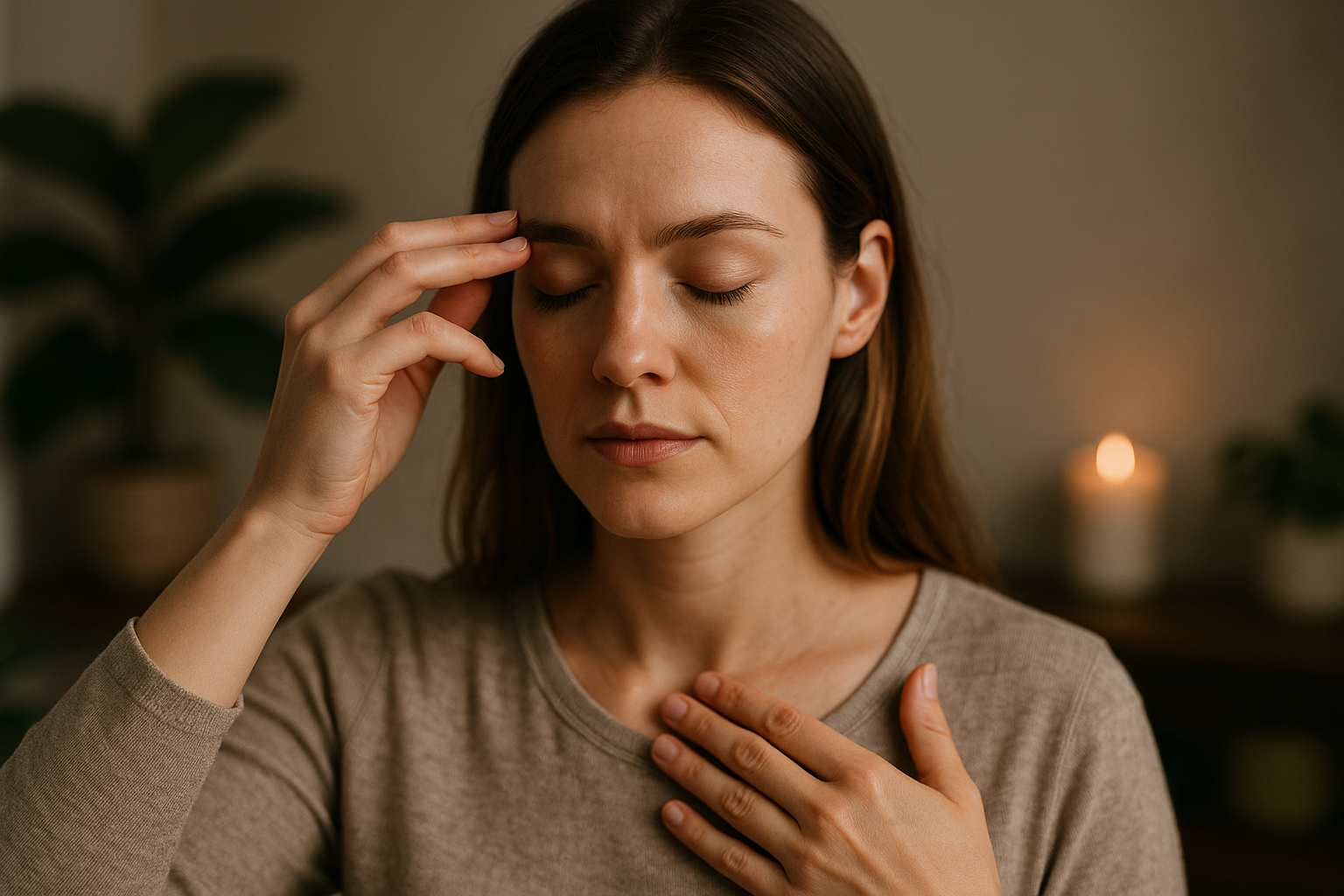Anxiety Self-Test — What Can Trigger It and Why It Sometimes Feels Like Normal Stress
Racing thoughts, tight muscles, and constant worry can stem from life events, brain chemistry, or both. These sensations often resemble ordinary stress, yet may point to an anxiety condition that benefits from evaluation. Click the keywords below to try a brief self-test, review common triggers, and learn ways to tell anxiety apart from everyday pressure.

What is an online anxiety screening tool?
An online anxiety screening tool is a questionnaire designed to help individuals assess their anxiety levels and determine if they might benefit from professional evaluation. These tools typically ask about common anxiety symptoms, their frequency, and their impact on daily life. While not a substitute for a clinical diagnosis, online screening tools can provide valuable insights and encourage individuals to seek further help if needed. Many reputable mental health organizations offer free, confidential online anxiety screenings that can be completed in just a few minutes.
What are typical triggers of anxiety episodes?
Anxiety episodes can be triggered by various factors, both internal and external. Common triggers include:
-
Major life changes (e.g., moving, starting a new job, or ending a relationship)
-
Financial stress
-
Health concerns
-
Work or academic pressure
-
Social situations or public speaking
-
Trauma or past experiences
-
Genetics and family history
-
Substance use or withdrawal
Understanding personal triggers can help individuals develop coping strategies and manage anxiety more effectively. It’s important to note that triggers can vary greatly from person to person, and what causes anxiety in one individual may not affect another.
How do stress and anxiety differ?
While stress and anxiety share some similarities, there are key differences between the two:
-
Duration: Stress is typically short-term and tied to a specific event or situation, while anxiety can persist even when the stressor is no longer present.
-
Intensity: Anxiety tends to be more intense and overwhelming than normal stress reactions.
-
Focus: Stress is usually related to current concerns, whereas anxiety often involves excessive worry about future events or outcomes.
-
Physical symptoms: While both can cause physical discomfort, anxiety may lead to more severe and prolonged physical symptoms.
-
Impact on daily life: Anxiety can significantly interfere with daily activities and relationships, while stress is generally more manageable.
Understanding these differences can help individuals recognize when their stress levels may be crossing into anxiety territory and when it might be time to seek professional help.
What physical symptoms are linked to anxiety?
Anxiety can manifest in various physical symptoms, which may include:
-
Rapid heartbeat or palpitations
-
Shortness of breath or hyperventilation
-
Sweating or hot flashes
-
Trembling or shaking
-
Muscle tension or aches
-
Fatigue or weakness
-
Nausea or stomach discomfort
-
Headaches or dizziness
-
Sleep disturbances
-
Chest pain or tightness
These physical symptoms can be alarming and may even mimic other health conditions. If you experience persistent or severe physical symptoms, it’s essential to consult with a healthcare provider to rule out other potential causes and receive appropriate treatment.
How can I find certified anxiety therapists near me?
Finding a certified anxiety therapist in your area can be achieved through several methods:
-
Consult your primary care physician for referrals to mental health professionals specializing in anxiety disorders.
-
Contact your insurance provider for a list of in-network mental health professionals.
-
Use online directories provided by professional organizations such as the Anxiety and Depression Association of America (ADAA) or the American Psychological Association (APA).
-
Explore teletherapy options, which have become increasingly popular and accessible, allowing you to connect with certified therapists remotely.
-
Check with local universities or mental health clinics for potential low-cost therapy options or training clinics.
When searching for a therapist, consider factors such as their experience with anxiety disorders, treatment approaches, and compatibility with your personal preferences and needs.
What are effective self-help strategies for managing anxiety?
While professional help is often beneficial for managing anxiety, there are several self-help strategies that can complement treatment or provide relief for milder cases:
-
Practice relaxation techniques such as deep breathing, progressive muscle relaxation, or meditation.
-
Engage in regular physical exercise, which can help reduce stress and improve mood.
-
Maintain a consistent sleep schedule and practice good sleep hygiene.
-
Limit caffeine and alcohol consumption, as these can exacerbate anxiety symptoms.
-
Keep a journal to track triggers, symptoms, and coping strategies.
-
Challenge negative thoughts through cognitive restructuring techniques.
-
Prioritize self-care activities that promote relaxation and enjoyment.
-
Connect with supportive friends, family, or support groups.
-
Learn and practice time management and organizational skills to reduce stress.
-
Consider trying mindfulness-based stress reduction (MBSR) techniques or apps.
Remember that while these strategies can be helpful, they are not a substitute for professional treatment in cases of severe or persistent anxiety. If you find that your anxiety significantly impacts your daily life or doesn’t improve with self-help methods, it’s important to seek guidance from a mental health professional.
In conclusion, anxiety can be a challenging condition that often mimics normal stress but may require professional intervention. By understanding the triggers, symptoms, and differences between stress and anxiety, individuals can better recognize when they might benefit from seeking help. Online anxiety screening tools and self-help strategies can be valuable starting points, but consulting with certified anxiety therapists remains crucial for those experiencing persistent or severe symptoms.
This article is for informational purposes only and should not be considered medical advice. Please consult a qualified healthcare professional for personalized guidance and treatment.




